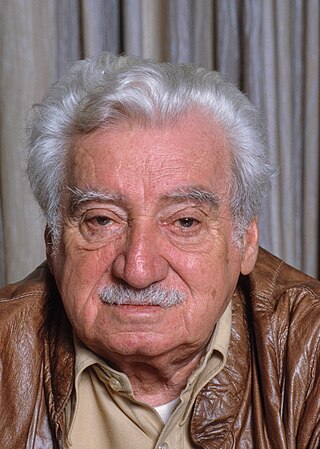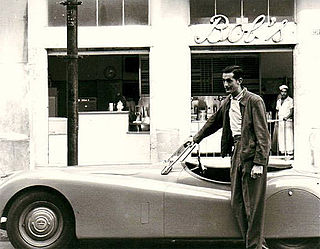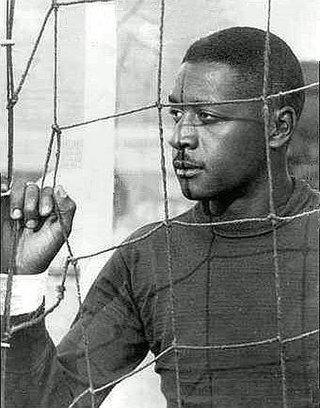
Maria do Carmo Miranda da Cunha, known professionally as Carmen Miranda, was a Portuguese-born Brazilian singer, dancer, and actress. Nicknamed "The Brazilian Bombshell", she was known for her signature fruit hat outfit that she wore in her American films.

Paulo Coelho de Souza is a Brazilian lyricist and novelist and a member of the Brazilian Academy of Letters since 2002. His 1988 novel The Alchemist was an international best-seller.

The Three Caballeros is a 1944 American live-action and animated musical propaganda anthology film produced by Walt Disney and released by RKO Radio Pictures. The film premiered in Mexico City on December 21, 1944. It was released in the United States on February 3, 1945 and in the United Kingdom in March 1945. It marks the tenth anniversary of Donald Duck and plots an adventure through parts of Latin America, combining live-action and animation. This is the second of the six package films released by Walt Disney Productions in the 1940s, following Saludos Amigos (1942). It is also notable for being one of the first feature-length films to incorporate traditional animation with live-action actors.

Jorge Amado was a Brazilian writer of the modernist school. He remains the best-known of modern Brazilian writers, with his work having been translated into some 49 languages and popularized in film, including Dona Flor and Her Two Husbands in 1976. His work reflects the image of a Mestiço Brazil and is marked by religious syncretism. He depicted a cheerful and optimistic country that was beset, at the same time, with deep social and economic differences.

The End of the River is a 1947 British drama film made in Belém, Brazil about a Brazilian Indian boy who leaves the jungle for the city, where he is accused of murder. It was directed by Derek Twist and written by Wolfgang Wilhelm, based on a novel by Desmond Holdridge. The film stars Sabu and Bibi Ferreira.
Copacabana most commonly refers to:

Robert Falkenburg was an American amateur tennis player and entrepreneur. He is best known for winning the Men's Singles at the 1948 Wimbledon Championships and introducing soft ice cream and American fast food to Brazil in 1952. He founded the Brazilian fast food chain Bob's.

Ary Evangelista de Resende Barroso was a Brazilian composer, pianist, soccer commentator, and talent-show host on radio and TV. He was one of Brazil's most successful songwriters in the first half of the 20th century. Barroso also composed many songs for Carmen Miranda during her career.

Moacir Barbosa do Nascimento was a Brazilian professional footballer who played as a goalkeeper. His career spanned 22 years. He was regarded as one of the world's best goalkeepers in the 1940s and 1950s, and was known for not wearing gloves, as would be typical. Barbosa is mainly associated with Brazil's defeat against underdogs Uruguay in the decisive match of the 1950 FIFA World Cup, an upset dubbed the Maracanazo.

Alberto de Almeida Cavalcanti was a Brazilian-born film director and producer. He was often credited under the single name "Cavalcanti".
A list of films produced in Brazil ordered by year and split onto separate pages by decade. For an alphabetical list of films currently on Wikipedia see Category:Brazilian films
DeDe, De De, Dedé or Dédé may refer to:

Walter Carvalho is a critically and internationally acclaimed Brazilian cinematographer.

Copacabana is a 1947 American musical comedy film directed by Alfred E. Green starring Carmen Miranda, Groucho Marx and Steve Cochran. The film is a showcase for Miranda, who performs several numbers in her usual style, including a high-energy rendition of "Tico-Tico". Groucho, as Lionel, her fiance and agent, also sings a musical number, "Go West, Young Man", wearing his traditional greasepaint brows, mustache, and baggy suit. This was Groucho's first significant film appearance as a solo act, minus Harpo and Chico.
Anselmo Duarte Bento was a Brazilian actor, screenwriter and film director.

Heleno de Freitas was a Brazilian footballer who played as a forward.
Pepe is a pet form of the Spanish and Portuguese name José (Joseph). It is also a surname.

The Cinemateca Brasileira is the institution responsible for preserving Brazilian audiovisual production. In July 2021, it experienced a major fire.

Events in the year 1947 in Brazil.
This page is based on this
Wikipedia article Text is available under the
CC BY-SA 4.0 license; additional terms may apply.
Images, videos and audio are available under their respective licenses.















